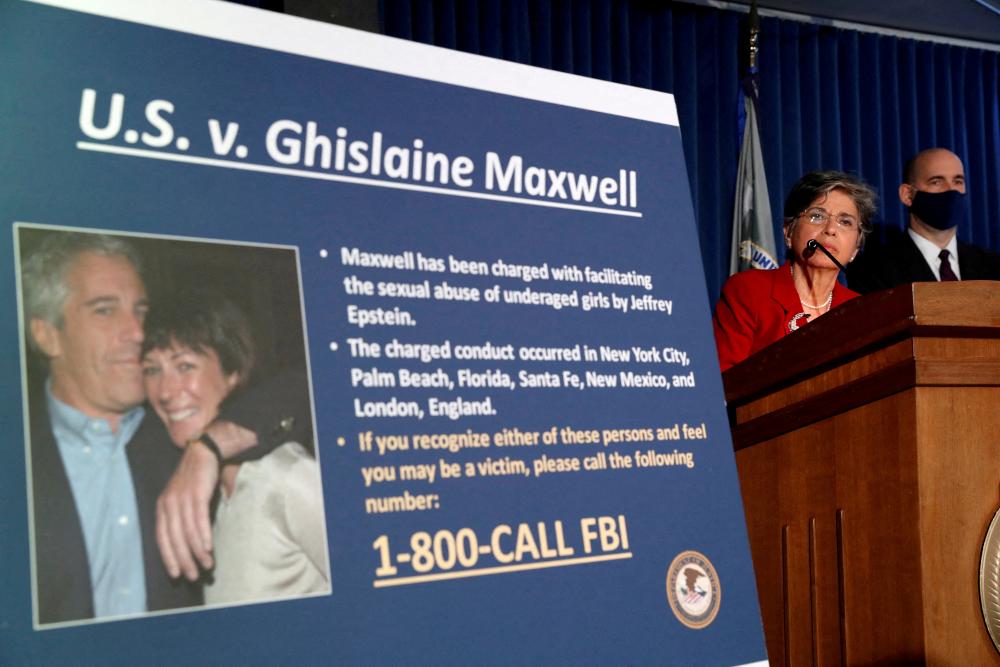Dismissing it as little more than a “diversion,” a federal judge in New York has formally rejected the Trump-led US justice department’s request to release transcripts of pre-indictment, grand jury interviews with witnesses in the case of Ghislaine Maxwell, the convicted sex trafficker and associate of Jeffrey Epstein.
Judge Paul Engelmayer wrote that the transcripts could not be released publicly – “casually or promiscuously” – as Donald Trump’s government had pushed for because it would risk “unraveling the foundations of secrecy upon which the grand jury is premised”.
Nonetheless, while Engelmayer said that releasing the transcripts would jeopardize the confidence of people called to testify before grand juries, he also made it a point to write that the transcripts were “redundant of the evidence at Maxwell’s trial”.
Engelmayer also said that the government did not identify information of consequence in the record that was not already public in its request to release the Maxwell case’s grand jury testimony.
That observation raises questions about whether the Trump administration meant to substantially address the bipartisan calls for transparency in Epstein’s case through its move for the transcripts’ release.
And Engelmayer sought to answer those questions in his ruling.
“A member of the public, appreciating that the Maxwell grand jury materials do not contribute anything to public knowledge, might conclude that the government’s motion for their unsealing was aimed not at ‘transparency’ but at diversion – aimed not at full disclosure but at the illusion of such,” he wrote.
“Contrary to the government’s depiction, the Maxwell grand jury testimony is not a matter of significant historical or public interest,” he added. “Far from it. It consists of garden-variety summary testimony by two law enforcement agents.”
Brad Edwards, a Florida lawyer who has represented nearly two dozen Epstein accusers, told the Associated Press that he did not disagree with the the Engelmayer’s ruling Monday.
“Our only concern was that if materials were released, then maximum protection for the victims was essential,” he said. “The grand jury materials contain very little in the way of evidentiary value anyway.”
Trump’s administration had requested the release of grand jury transcripts in July amid intense political heat around the investigation of Epstein – the late financier and convicted pedophile – and his co-conspirator Maxwell, who is serving a 20-year prison sentence.
Members of the president’s Republican party joined the calls for his administration to resolve questions about the scandal, some of which center on him.
Maxwell recently was interviewed by the deputy attorney general, Todd Blanche, and soon after was moved from a prison in Florida to a lower security prison in Texas, prompting accusations that a cover-up of evidence linking Epstein to Trump was in progress.
An attorney for Maxwell says she spoke truthfully to Blanche. The lead prosecutor in the 2022 case against Maxwell, Maurene Comey, was dismissed from the southern district of New York federal prosecutor’s office before the interview took place.
The request to unseal the testimony has been seen as an incremental measure: the government has acknowledged they contain no testimony from witnesses who weren’t members of law enforcement.
But thousands of other documents and electronic files are in the government’s possession. In early July, the US justice department and FBI released a memo stating they found no evidence of an Epstein “client list” or blackmail – and that no further materials would be released to protect victims.
Yet the fight over Epstein-Maxwell grand jury testimony is not complete. A federal judge in Florida is looking at releasing transcripts from the grand jury testimony that led to an earlier federal indictment against Epstein – from 2006 – that was later shelved.
To resolve that case, Epstein pleaded guilty to Florida state charges of soliciting minors and entered into a non-prosecution agreement to protect himself and four named others from future prosecution. Maxwell has appealed her conviction to the US supreme court, claiming she should have been shielded under that earlier agreement.
But a number of avenues remain open. The Republican-led House oversight committee has subpoenaed the justice department and issued subpoenas to Bill Clinton, ex-secretary of state and Hillary Clinton – whom Trump defeated in 2016 to secure his first presidency – and eight former top law enforcement officials to appear before the committee in the fall.

